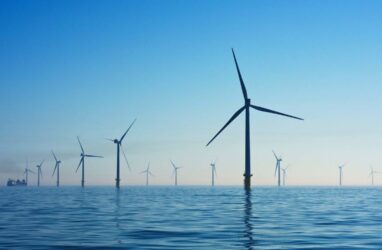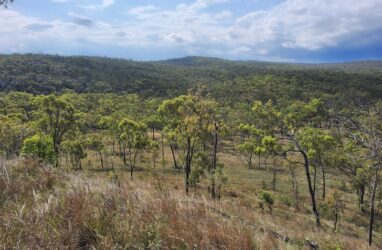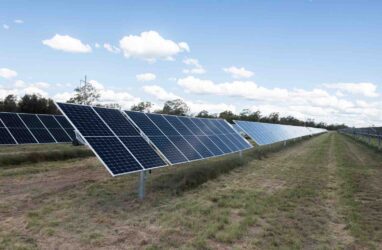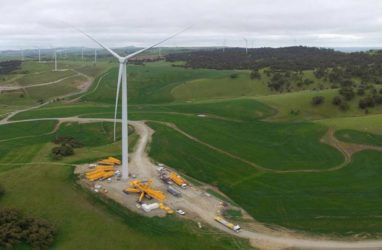Feed aggregator
Brazil, China, Indonesia top biodiversity funding priority list, analysts say
Take it from a Canadian, ticks aren’t nice – and climate change means they’re thriving in the UK | Stephen Buranyi
England and Scotland are experiencing a tick-borne virus outbreak. We don’t know the causes, but we know rising temperatures will mean more of them
Where I’m from, you can’t be considered a responsible outdoor person unless you’re willing to inspect your father’s naked body for ticks. Nova Scotia, on the east coast of Canada, has the dubious honour of being among the tick-iest places in the world. Surely these things are hard to measure, but reputable scientists claim it has the highest tick-to-person ratio in the country, and, at about one case of Lyme disease for every 1,000 residents per year, the highest incidence of Lyme disease as well. Walking outside on anything besides cut grass or concrete is likely to yield multiple tiny, near-indestructible arachnids that immediately make an upward dash for a warm crevice at the knee, armpit or often, groin, to burrow into. Finding and removing them can require a mirror and some contortions, or a helpful and unsqueamish friend or family member.
Things are – thankfully – not quite so bad in the UK. But the recent outbreak of potentially deadly tick-borne encephalitis virus (TBEV) in England and Scotland is a reminder that ticks are getting worse here, as well. The first suspected incidence of the disease in the UK was in 2019, and cases of Lyme disease also appear to be increasing over the past few years.
Stephen Buranyi is a writer specialising in science and the environment
Continue reading...Vitol and Nigerian sovereign fund ink deal to develop carbon projects
Salesforce releases nature-positive strategy, commits to blue carbon credit purchase
Euro Markets: Midday Update
Viable pathway exists for accelerating green steel projects with concerted policy action, report says
Dartmoor wild camping hopes rise as park wins right to appeal against ban
Authority given permission to challenge high court ruling in favour of landowner
Wild camping may once again be allowed on Dartmoor, after the national park was granted permission to appeal against a decision to ban it.
Alexander Darwall, who bought 1,620 hectares (4,000 acres) of the national park in 2013, took the park authority to the high court last year, arguing that the right to wild camp without a landowner’s permission never existed. In January, a judge ruled in his favour, ending the decades-long assumption that wild camping was allowed.
Continue reading...Virgin Orbit boss blasts leaders in parting email
Digital map created of UK's underground pipes and cables
Australia Market Roundup: Industrials commit to decarbonisation following Safeguard Mechanism passage, WA EPA releases GHG guide
Fire ants are planning to destroy Australia and not in a good way | First Dog on the Moon
These invasive ants are coming for your lifestyle – no more barbecues or sports grounds, no more tiny animals or native ants or nature!
- Sign up here to get an email whenever First Dog cartoons are published
- Get all your needs met at the First Dog shop if what you need is First Dog merchandise and prints
Hunter offshore wind project gets cracking on environmental approvals
 Massive 1.65GW offshore wind project gets jump on its NSW Hunter zone competitors, taking first step on environmental approvals.
Massive 1.65GW offshore wind project gets jump on its NSW Hunter zone competitors, taking first step on environmental approvals.
The post Hunter offshore wind project gets cracking on environmental approvals appeared first on RenewEconomy.
Apple pulls out of off take deal for Andrew Forrest wind project in Queensland
 Windlab says Apple's exit from major wind project is due to a milestone miss, others suggest blowback from a stark public environment report.
Windlab says Apple's exit from major wind project is due to a milestone miss, others suggest blowback from a stark public environment report.
The post Apple pulls out of off take deal for Andrew Forrest wind project in Queensland appeared first on RenewEconomy.
Mackerel loses sustainable status as overfishing puts species at risk
Marine Conservation Society calls for better regulation of how north-east Atlantic mackerel is caught as stocks decline
Mackerel populations are declining because of overfishing and the fish no longer a sustainable food choice, the Marine Conservation Society has said in its new UK guide to sustainable seafood.
North-east Atlantic mackerel has been considered an environmentally-friendly choice for consumers since before 2011, but the species has become increasingly scarce and now experts are calling for more regulation over how its caught.
Continue reading...One million PV panels: Construction complete on Australia’s biggest solar farm
 Australia's biggest solar farm has completed the installation of one million panels, and will shortly reach full production.
Australia's biggest solar farm has completed the installation of one million panels, and will shortly reach full production.
The post One million PV panels: Construction complete on Australia’s biggest solar farm appeared first on RenewEconomy.
Tesla misses Solar Roof installation targets – by a long, long way
 Analysis by Wood Mackenzie finds Tesla falling well short of its Solar Roof installation targets, and warns other BIPV products may take the lead in US.
Analysis by Wood Mackenzie finds Tesla falling well short of its Solar Roof installation targets, and warns other BIPV products may take the lead in US.
The post Tesla misses Solar Roof installation targets – by a long, long way appeared first on RenewEconomy.
Carbon services provider launches low-volume online platform
Australian coal plants are producing less power, but more toxic pollution
 Levels of fine particle pollution and mercury are up in Victoria and NSW, while Queensland tops the lists for all emissions.
Levels of fine particle pollution and mercury are up in Victoria and NSW, while Queensland tops the lists for all emissions.
The post Australian coal plants are producing less power, but more toxic pollution appeared first on RenewEconomy.
Brookfield kicks off Australian renewables splurge with 400MW wind farm and battery
 Brookfield announces "first of many" renewable projects in Australia – a 400MW Queensland wind farm with a co-located battery.
Brookfield announces "first of many" renewable projects in Australia – a 400MW Queensland wind farm with a co-located battery.
The post Brookfield kicks off Australian renewables splurge with 400MW wind farm and battery appeared first on RenewEconomy.



